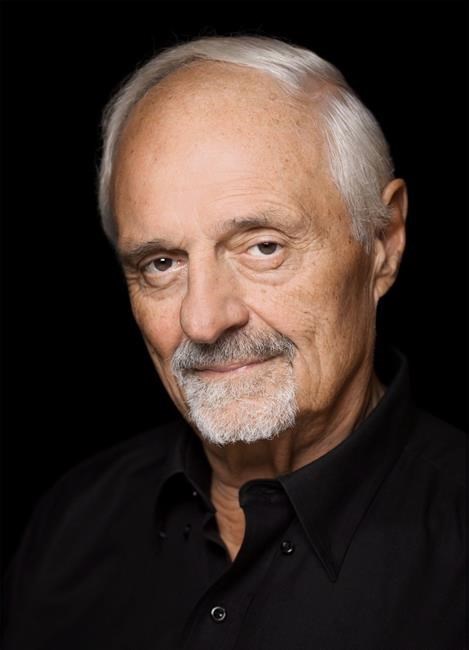
Canadian writer-director Ted Kotcheff, shown in a handout photo, has racked up a wide variety of credits in his storied career, from "Law & Order: Special Victims Unit" to "First Blood" and "Weekend at Bernie's." THE CANADIAN PRESS/HO-Jeremy Jackson MANDATORY CREDIT
April 04, 2017 - 1:05 PM
TORONTO - Canadian writer-director Ted Kotcheff has racked up a wide variety of credits in his long career, from "The Apprenticeship of Duddy Kravitz" to "First Blood" and "Weekend at Bernie's."
He's directed many Hollywood heavyweights, including Gregory Peck, William Shatner, Ingrid Bergman and Gene Hackman, and developed a close friendship and working relationship with the late acclaimed author Mordecai Richler.
Most recently he's been an executive producer for hundreds of episodes of "Law & Order: Special Victims Unit," one of the longest-running TV shows ever.
All this from the most humble of beginnings in Toronto's Cabbagetown neighbourhood during the Great Depression, Kotcheff writes in his candid new memoir "Director's Cut: My Life in Film," when his Bulgarian dad and Macedonian mom were so poor they couldn't afford coal or wood to heat their home.
One winter night, when temperatures dipped to around -40 C, a nearly two-year-old Kotcheff almost froze to death.
"I was blue and I could hardly breathe and my mother woke up and she saw me, this blue frozen piece of meat, and she screamed," the 85-year-old raconteur recalled in a recent interview.
His father, a marathon runner, ran 20 blocks to get a doctor while his uncle risked being arrested by chopping down two spruce trees and dragging them back for firewood.
"The doctor arrived, he plunged the thermometer up my bum, pulled it out, it was 84 — two degrees from death — and he said, 'Hypothermia!' ... He picked me up and dropped me in the boiling water and I screamed bloody murder."
Kotcheff's book contains rich detail about his subsequent work in TV and film with behind-the-scenes experiences with the stars.
Because there wasn't much of a film industry in Canada yet, he moved to England in the late 1950s and it was in London where he and Richler became roommates — in an apartment that Kotcheff joked "had the decor of Charles Dickens," with black tar paper for flooring — and "The Apprenticeship of Duddy Kravitz" was written.
"I read the whole book at one sitting ... and said, 'Mordecai, not only is this one of the great Canadians novels ever written, but one day I'm going to go back to Canada and make a film out of it,'" he said.
"We laughed like crazy because of course at that time there was no Canadian film industry whatsoever."
But the book would eventually be turned into a Quebec-shot film, released in 1974, that earned Richler an Oscar nomination. It also gave Kotcheff his big break in Hollywood — and plenty of great stories.
He recalled how on the Israeli set of his next film, "Billy Two Hats," his star Peck had to be protected by agents after a group of terrorists threatened to assassinate him.
Kotcheff dabbled with the action-adventure genre on "First Blood" and remembered Sylvester Stallone's commitment to performing his stunts. A scene in which Stallone's John Rambo falls off a cliff onto a tree branch left the actor with four broken ribs.
"He let out the most incredibly crying pain, 'Ahhhh,' and people said, 'what a wonderful performance,'" recalled Kotcheff. "That was no performance. That was the pain of cracking four ribs."
It was "primarily a Canadian film," noted Kotcheff. "It's based on a Canadian book written by David Morrell, it had a Canadian director, we shot it in Hope, British Columbia, and it had Canadian crew."
Kotcheff's book also has some juicy stories, like the time Kirk Douglas walked away from one of his films. He also gets deeply personal, writing about the abuse he suffered at the hands of his father and the discrimination his parents faced while trying to settle in Toronto.
"Some memories are painful but I wanted to write the truth," said Kotcheff, who now lives in Los Angeles.
"I wasn't going to lie or cheat or colour it nicely. I was going to tell the truth and that's what's good about the book, I think. It's moving and yet there are endlessly funny stories.
"Filmmaking is a funny business and even I laugh when I read them again."
News from © The Canadian Press, 2017